 'Socially responsible film maker' seems to be his tag. People talk of his brilliant exploration of social issues, of his technical superiority, of the superb performances he extracted from his actors, etc. etc. All this gives one the impression that he was the party-pooper of the decade that was the 70s; that he made "meaningful" cinema which was too artistic to be enjoyed by any but the very intellectual classes (whoever they might be). Of course, there is no denying that his films were socially responsible, that they did have great performances, that they were artistically made. But what all these tags do not reveal is that his films were actually interesting and fun to watch, that he is a brilliant story teller, that his films have a sense of humor that helps you over the grim parts, without ever trivialising the subject.
'Socially responsible film maker' seems to be his tag. People talk of his brilliant exploration of social issues, of his technical superiority, of the superb performances he extracted from his actors, etc. etc. All this gives one the impression that he was the party-pooper of the decade that was the 70s; that he made "meaningful" cinema which was too artistic to be enjoyed by any but the very intellectual classes (whoever they might be). Of course, there is no denying that his films were socially responsible, that they did have great performances, that they were artistically made. But what all these tags do not reveal is that his films were actually interesting and fun to watch, that he is a brilliant story teller, that his films have a sense of humor that helps you over the grim parts, without ever trivialising the subject.For me, the Shyam Benegal love started in the 80s with his lovely tele serial Yatra. It was an almost-anthology of tales set within the compartments of a train, journeying from Kashmir to Kanyakumari and back. It sketched the stories of the people who boarded the train in a few beautiful strokes - through their actions and interactions within the train compartment. Yes, it was brilliant film making, but more important to my masala-fed kiddie self, it was fun and interesting. It felt like I was really meeting all these people and getting to know them.
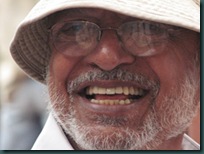 As I grew up, I saw more Benegal, since Indian TV used to bring him on quite often. It was seeing Mandi (1983), his brilliant social satire, that finally got me interested in hunting up more Benegal films and also more "art" films. Hey! if they were all as much fun as Mandi, then everybody was WRONG and art films were definitely must-see! Thanks to Benegal, I "discovered" Satyajit Ray, Prakash Jha, Girish Karnad, Govind Nihalani, et al � in other words, the world of parallel cinema. And Benegal himself was parallel cinema for Hindi films in the 70s and contributed significantly to the wealth of filmi variety thereof.
As I grew up, I saw more Benegal, since Indian TV used to bring him on quite often. It was seeing Mandi (1983), his brilliant social satire, that finally got me interested in hunting up more Benegal films and also more "art" films. Hey! if they were all as much fun as Mandi, then everybody was WRONG and art films were definitely must-see! Thanks to Benegal, I "discovered" Satyajit Ray, Prakash Jha, Girish Karnad, Govind Nihalani, et al � in other words, the world of parallel cinema. And Benegal himself was parallel cinema for Hindi films in the 70s and contributed significantly to the wealth of filmi variety thereof.Let me tell you up front, I dont wish to discuss the significance of his films, either to cinema history or to social awareness. I do not want to talk about the technical brilliance of his film making, or analyse his undoubtedly big impact on 20th century cinema. We�ll take that as given. Instead, I�ll concentrate on what a masala-loving film-buff like me finds in his films.
The thing I enjoy most about his films is how tautly the story is told � your attention is caught and held as the story unfolds. There are no unnecessary diversions or loss of focus, to dilute the impact of the story. The characters themselves are so well sketched and executed that you cant help but be interested in them and be curious about their fate. The other aspect of his work that I love is the sheer diversity of subjects and plots in his films. You cant watch one of his films and predict how the rest of them will turn out! Just take a look at his 70s filmography � there is so much variety in the films he made.
He started out in 1974, with the moving Ankur. This sad tale of a rural inter-caste affair was the seedling from whence sprang the tree of parallel cinema. He followed it up in 1975, with a children�s movie Charandas Chor and Nishant. Charan Das Chor was an adaptation of a folktale and had everything a child might desire - kiddies, princesses, honest thieves, spirits, magic� In a complete change of gears, Nishant, was a look at feudal tyranny in rural India, seen through the lens of a village woman abducted for the pleasure of the local land-owner.
1976 brought us Manthan, the story of how Dr. Kurien helped dairy farmers organise themselves into a farmer�s cooperative which gave India our beloved Amul Dairy and ushered in the White Revolution (that refers to milk, not skin color!). Next came Bhumika (1977) � the life-story of a 1940s actress, in search of freedom and self-fulfillment. In 1978, Benegal made two films � a period drama Junoon, and Kondura (released in Telugu as Anugraham) a modern mythical tale.
Junoon (1978)
 Amongst Benegal�s 70s films, this is my favorite. It has everything that I usually require from a period film � a gripping plot, realistic historical context, characters that tend towards grey rather than black and white, subtle acting, and dialogues written in sensible but pretty, rather than stylised, language. In short, my preferences run more to a North and South than a Mughal-e-Azam, and this one fits the bill beautifully.
Amongst Benegal�s 70s films, this is my favorite. It has everything that I usually require from a period film � a gripping plot, realistic historical context, characters that tend towards grey rather than black and white, subtle acting, and dialogues written in sensible but pretty, rather than stylised, language. In short, my preferences run more to a North and South than a Mughal-e-Azam, and this one fits the bill beautifully. 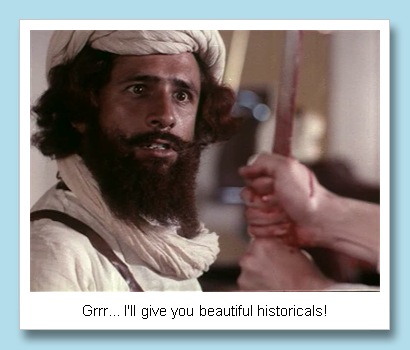
Its 1857, the time of the First War of Indian Independence. Indian soldiers have driven out the British forces in a number of places. In a small town in Northern India, the Anglo-Indian Labadoor family loses the man of the house in a brutal attack by the Indian soldiers. The Labadoor women � Mariam (Jenniffer Kendall), her daughter Ruth (Nafisa Ali), and her mother (Ismat Chugtai) - are captured by Javed Khan (Shashi Kapoor) for the Indian side. But Javed has more than a freedom struggle on his mind. He�s been obsessed with Ruth for a while, and seizes this opportunity to propose marriage. Mariam objects that the British forces will prevail eventually. What�ll happen to Ruth then, married to a known British enemy? Besides, she isnt keen to marry off her daughter to a man who is already married. They negotiate and strike a bargain � if the Indian side wins, Javed can marry Ruth.
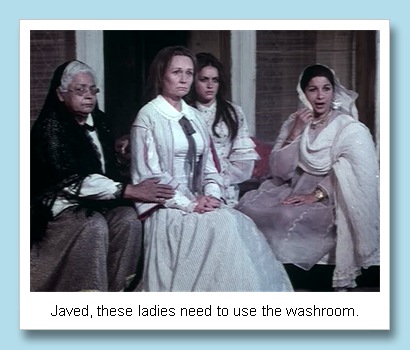

Its the sort of film where knowing which side eventually won, wont tell you how the personal conflict will get resolved! Thats because there are real people involved � people with changeable emotions and perspectives. As the Labadoor women spend time with their Indian jailors, treated more as welcome guests than prisoners, they learn to look upon their Indian acquaintances as persons like themselves, rather than as exotic 'others'. The Indians, for their part, arrive at the same place. There is growing rapprochement and even affection, on both sides � something thats thrown into sharp relief against the death and destruction that is going on all around them. And then there is the depiction of brutality� Used as I was to popular Hindi films that depict the Britishers as blood-thirsty and sadistic villains, while the Indians are always cast in the noble martyr/freedom fighter mould, this film surprised me with its balanced perspective. It shows the brutality of the British side, but it doesnt spare the Indians, either.
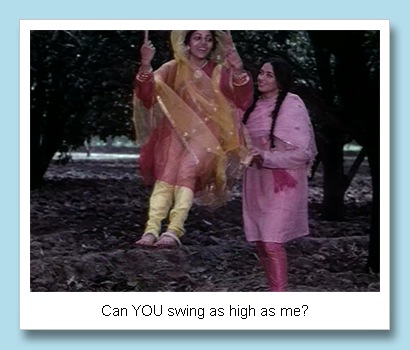
If the characters� interpersonal interactions are the best thing about this film, its the well sketched characters who make it memorable. Though its Jenniffer�s performance as Mariam that I love most, the character that stays with me more, is that of Javed. He is, by far, the most enigmatic character in the film. You can read the emotions and motivations of the others, but with Javed, its not so easy. He seems to be obsessed with Ruth, and clearly wants her very badly. Yet, when he has her completely in his power, he negotiates and bargains, even pleads, but never ever resorts to force. Which begs the question, is he really such a principled gentleman that he wont forcibly take what he wants? Or is it that he doesnt really want Ruth?
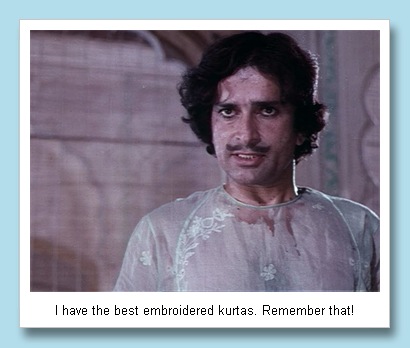
The film closes with an end that leaves more questions than it answers - and that is probably what makes this film so haunting. You keep wondering why Javed did what he did in the end. (If you dont mind spoilers, check out this discussion of the ending, on Bollywhat) A great example of Benegal�s story telling expertise!
There�s reams more that can be written about this film in particular, and Benegal�s cinematic classics, in general. But I�ll sign off with this astute comment from an imdb user on the Bhumika thread:
[Benegal] combin[es] the vibrant, visual energy of Bollywood, the depth of character of Ray, with a narrative complexity, formal daring, and willingness to experiment, alien to both.
And thats why he gets so much love on Old is Gold!
Comments
Post a Comment